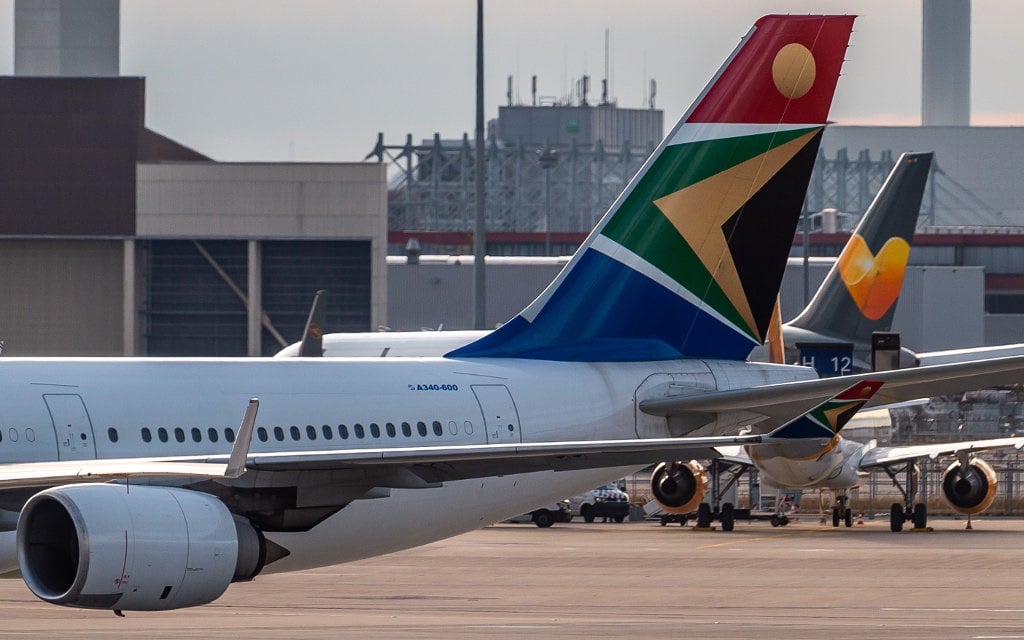


A South African Airways aircraft on the apron of Frankfurt Airport in 2018.
Silas Stein/picture alliance via Getty Images
- A majority of SAA’s creditors have voted to adopt the airline’s proposed business plan.
- In terms of legislation this means the plan may be implemented, subject to funding obtained.
- The vote to adopt the rescue plan gives the national carrier a chance to avoid liquidation.
About 86% of the creditors of South African Airways on Tuesday voted to adopt the airline’s proposed business rescue plan, which would require government or a strategic equity partner to provide an additional R16.3 billion in funding.
In terms of the Companies Act, this means the proposed rescue plan may be implemented, subject to funding obtained. The DPE has informed the rescue practitioners that it will provide a letter stipulating the funding received in time for a deadline of 15 July.
The vote to adopt the rescue plan gives the 86-year-old national carrier a chance to avoid liquidation. Finance Minister Tito Mboweni did not allocate any additional funds for SAA in his supplementary budget announced at the end of June.
‘New SAA’
Just before the creditors voted, Kgathatso Tlhakudi, acting director general of the department of public enterprises, addressed the meeting to say that government supports restructuring SAA into a commercially sustainable airline, while minimising the impact of the airline’s restructure on job losses. In his view, the airline that will emerge from the restructure process will be an attractive asset for an equity partner.
He also said the department will be announcing an interim board of the “new SAA” soon. The interim CEO for the airline will be Phillip Saunders, currently SAA’s chief commercial officer. Tlhakudi said Saunders has a credible track record of leading airlines around the world.
The national airline went into business rescue in December last year. Its financial losses totalled more than R10 billion over the past two years. Over the past decade, government has had to bail it out with almost R30 billion.

